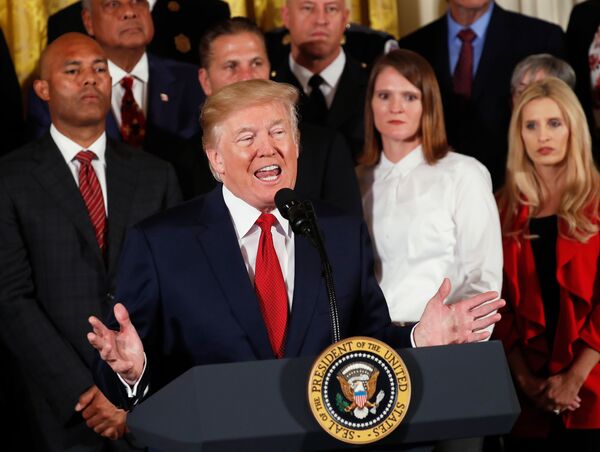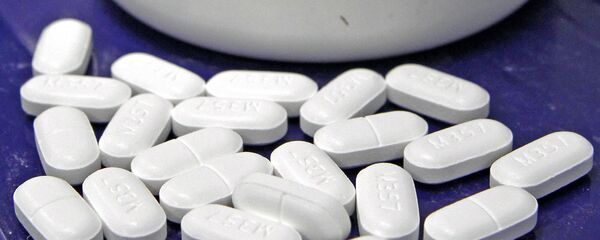John Nath Kapoor, whose personal fortune is reputedly worth US$1.75 billion, was arrested by the FBI at his home in Phoenix, Arizona, on Thursday, October 26, on charges that include racketeering, conspiracy and fraud to prop up sales of a pain medication called Subsys, a fentanyl spray typically used to treat cancer patients suffering excruciating pain.
His arrest comes nearly a year after another former Insys CEO Michael Babich and five other executives were arrested as part of an alleged "nationwide conspiracy" to commit fraud on insurance companies for profit by offering bribes and kickbacks to doctors to encourage them to prescribe the signature drug for unacceptable uses.
Subsys transmits the extremely powerful narcotic fentanyl in spray form, allowing it to be placed beneath the tongue for fast, potent pain relief. It is meant only for treating cancer patients suffering from severe pain.
'Illegally Contributing to Nationwide Epidemic'
The Justice Department claims that Kapoor and his executives offered financial rewards to doctors who wrote "large numbers of prescriptions" for patients, many of whom did not have cancer. It also alleges that they defrauded insurers by forming a "reimbursement unit" dedicated to obtaining prior authorization directly from them despite many being reluctant to pay for the drug.
"More than 20,000 Americans died of synthetic opioid overdoses last year, and millions are addicted to opioids. And yet some medical professionals would rather take advantage of the addicts than try to help them. This Justice Department will not tolerate this. We will hold accountable anyone — from street dealers to corporate executives — who illegally contributes to this nationwide epidemic," Attorney General Jeff Sessions said.
Acting United States Attorney William D. Weinreb said:
"In the midst of a nationwide opioid epidemic that has reached crisis proportions, Mr. Kapoor and his company stand accused of bribing doctors to over-prescribe a potent opioid and committing fraud on insurance companies solely for profit. Today's arrest and charges reflect our ongoing efforts to attack the opioid crisis from all angles. We must hold the industry and its leadership accountable — just as we would the cartels or a street-level drug dealer."
"As alleged, these executives created a corporate culture at Insys that utilized deception and bribery as an acceptable business practice, deceiving patients and conspiring with doctors and insurers. The allegations of selling a highly addictive opioid cancer pain drug to patients who did not have cancer, make them no better than street-level drug dealers," said Harold H. Shaw, special agent in charge of the Federal Bureau of Investigation (FBI), Boston Field Division.
"Today's charges mark an important step in holding pharmaceutical executives responsible for their part in the opioid crisis. The FBI will vigorously investigate corrupt organizations with business practices that promote fraud with a total disregard for patient safety," Special Agent Shaw added.
Trump Begins War on Opiods
Speaking at the White House on Thursday, October 26, Mr. Trump declared opioid as a national public health emergency, adding: "we can be the generation that ends the opioid epidemic."
"Nobody has seen anything like what is going on now. As Americans, we cannot allow this to continue. It is time to liberate our communities from this scourge of drug addiction. Never been this way. We can be the generation that ends the opioid epidemic. We can do it," he said.

The president stressed the need for further enforcement and linked his planned wall along the US-Mexico border with efforts to stem the tide of illegal drugs coming into the United States.
"An astonishing 90 percent of the heroin in America comes from south of the border — where we will be building a wall — which will greatly help in this problem," he added.
Experts remain somewhat skeptical, however, about the wall's ability to fight the problem, given its roots in painkillers prescribed by doctors in the United States.
Who Is Dr. Kapoor?
According to the company website, Kapoor received his PhD in medicinal chemistry from the State University of New York at Buffalo and had a BS in pharmacy from Bombay University in India.
The building that is home to the university's school of pharmacy and pharmaceutical sciences bears the name of Kapoor and his wife in recognition of their long-time philanthropic support.
In a statement, the university said: "The university is aware of Dr. Kapoor's arrest. We became aware of the charges through today's media reports and therefore it would be premature to comment further or take any action until the university has more information."
He also owns a large stake in generic drug maker Akron.
Insys Therapeutics Stock Falls
Immediately after news of Kapoor's arrest emerged, stock in Insys closed down nearly 23 percent, pushing the company's valuation down to $417 million.
In 2015, the firm was valued at more than US$19 billion before concerns first emerged surrounding its business practices.
Insys is believed to be developing its own drug to reverse opioid overdozes.




